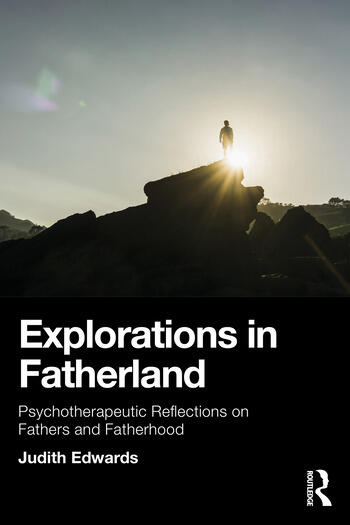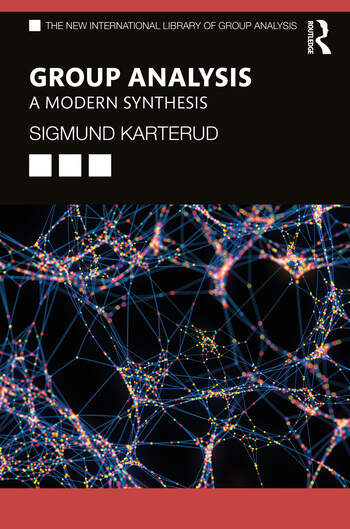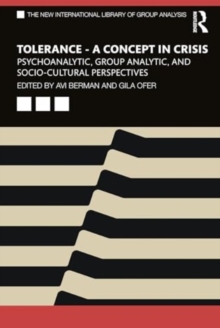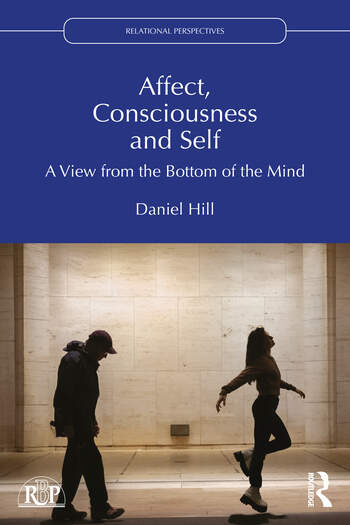Grandmotherland: Exploring the Myths and Realities
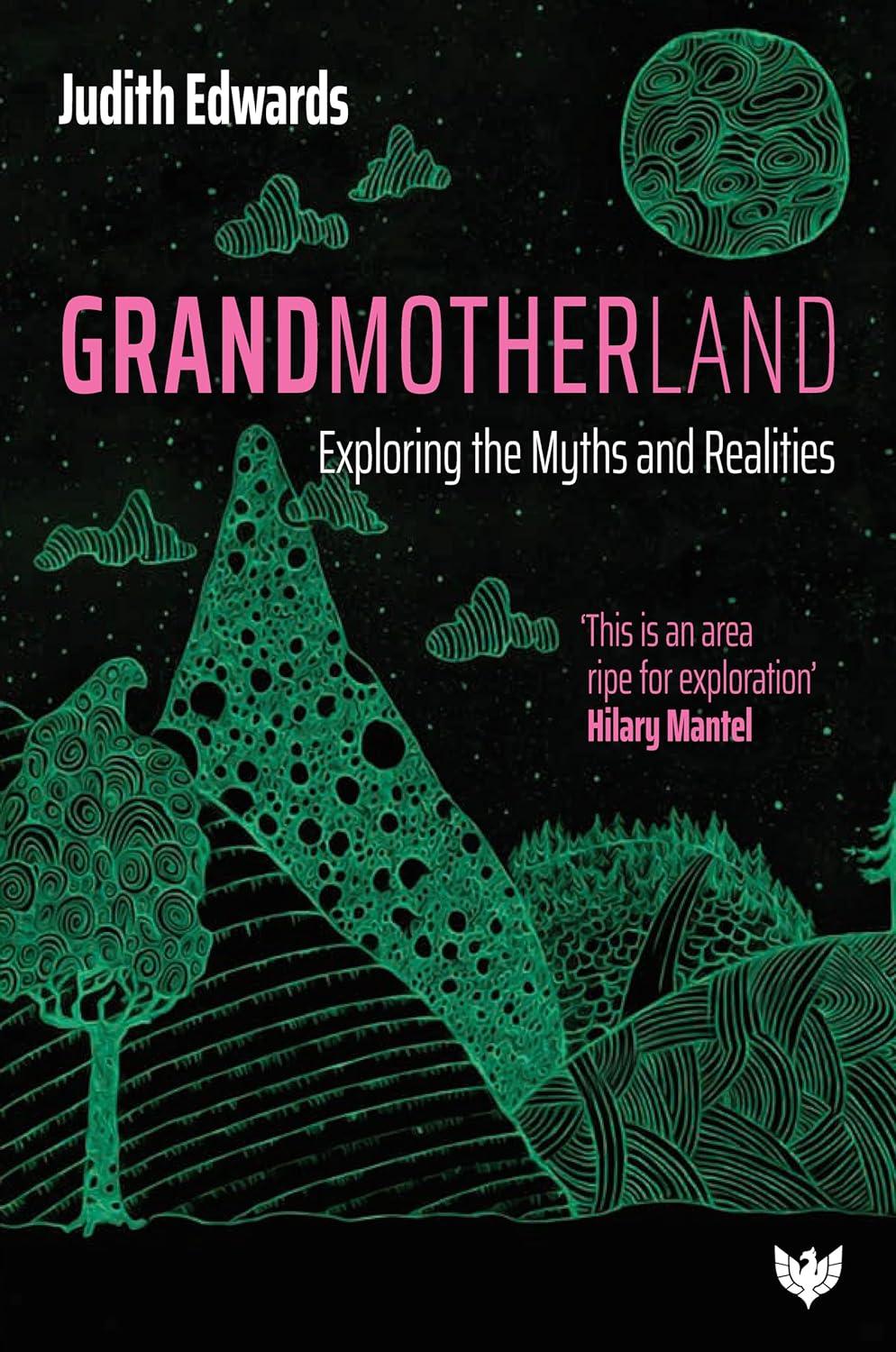
Book Details
- Publisher : Karnac Books
- Published : November 2023
- Cover : Paperback
- Pages : 176
- Category :
Individual Psychotherapy - Catalogue No : 96567
- ISBN 13 : 9781913494773
- ISBN 10 : 9781913494
Also by Judith Edwards
Being Alive: Building on the work of Anne Alvarez
Price £36.99
Our Customers Average Rating
Read all reviews (1)





Judith Edwards takes us on a journey through ‘Grandmotherland’. A land full of myth, where stereotypes and memes jostle with reality. She questions what we think of when we speak of grandmothers: an apple-cheeked granny knitting in her rocker or a monstrous grandma in wolf skin?
Dr Edwards looks at the stories – those carried down through fairy tales, family history, and legend and those of women living today. She invites you to consider what it takes to be a grandmother and how the role has evolved. It is not a ‘how to’ book but rather a book to ‘smash a few preconceptions and give us a more nuanced view’. Edwards extends the ideas about the role of the grandmother and the intergenerational patterns which affect how it is experienced. Internationally and interculturally informed, Edwards links to the internal psychological experience of grannyhood as well as the external factors at play: personality, culture, family history, and so much more.
As the cost of childcare continues to skyrocket, the lure of the grandmother childminder becomes ever stronger but what of the toll on grandma? Fractured relationships are commonplace but what does a grandmother do when she is frozen out? Grandmotherland: Exploring the Myths and Realities examines every facet of grannyhood: the meanings, reasons, and possibilities behind the myths, memes, and realities experienced by women the world over. Written for those living in Grandmotherland, those ready to embark on the journey, and those who have chosen against or been barred from travelling. This is a book for all of you to enjoy, as well as sparking ideas for those of you in the fields of psychoanalysis, social work, cultural sociology, anthropology, and more.
Reviews and Endorsements
This is an area ripe for exploration.
Hilary Mantel
Wow!... I found I romped through it, fascinated by finding so many pleasant and painful representations of myself and stimulated by those who had found grandmotherdom a quite different realm from my own. As for flavour, it reminds me of my grandmother's butterscotch, kept locked in a cupboard, definitely delicious but never enough ...
Juliet Hopkins, Ph.D , former ACP consultant child psychotherapist and author of An Independent Mind
This wise book is filled with wonderful stories, some disturbing and many touching and inspiring, all blended seamlessly with deep reflections on their meaning for human evolution and development. It is beautifully written too.
Anne Alvarez, Ph.D, MACP, Consultant child and adolescent psychotherapist
I cannot think of any child, parent, or grandparent who would not be utterly gripped by this extremely original and enlightening book, written with such warmth and wisdom. Dr Judith Edwards has made a truly great contribution to family psychology.
Professor Brett Kahr, Senior Fellow, Tavistock Institute of Medical Psychology, London, and Honorary Director of Research, Freud Museum London
A remarkable wide-ranging study of the meaning of grandmotherhood across the centuries and across many cultures. Judith Edwards draws on literature, folk tales, anthropology, psychoanalysis, and a variety of personal accounts of relationships with grandmothers and of becoming grandmothers in turn. It is also an unsettling read, as it aims to get beyond the familiar myths of idealised and demonised grandmothers, to disturb our too-easy resort to stereotypes. It will repay its readers with unexpected and stimulating insights and Edwards’ characteristic pleasure in bringing together highly diverse ways to understand human lives.
Margaret Rustin, Honorary Consultant Child Psychotherapist, Tavistock and Portman NHS Foundation Trust
What a journey! Grandmotherland is indeed a fascinating opening into the world of grandmothers. It reveals a privileged window through to the thoughts, feelings and voices that may not often be heard, of different human experiences in what can be a complicated family landscape for three generations.
Within this book is a wholesome space for discovering the many colours, nuances, similarities and differences associated with grannies/nanas/nonnas/babcias. Tales of love, altruism and discovery, along with the exhaustion and overwhelm of grandmothers coming to the rescue, as they surely have done for hundreds of years.
Grandchildren tell of their experiences too, illuminating the feelings of young children, who maybe now as adults, have words to describe what they couldn’t put a name to in their childhood but, which have nevertheless shaped their lives.
We also follow the poignant and honest accounts from women who do not have grandchildren.
Written by a psychotherapist, it is hard to read these stories without an internal reckoning taking place within oneself: Where do I stand in all this? Goodness I couldn’t possibly do that! And maybe an acknowledgment of those whispering feminine senses from which decisions are made and lives are shaped. The bravery of women sings throughout.
5 star Amazon review from Mrs K H Tudor-Hart
I received this excellent book for Xmas. As the late, great Hilary Mantel rightly says: its subject “is an area ripe for exploration” - that's the book in a nutshell. It’s a highly perceptive analysis of one of the oldest and most important family relationships: the wise, proxy mother with her grandchild, bringing her maturity to bear on the less experienced mother-child bond. A fruitful subject for its distinguished psychologist author to explore in professional detail. It’s a real surprise the topic hasn’t been explored before. A unique and valuable contribution to family and child psychology.
Amazon review, 2024
Grandmotherland is a recently published book by psychologist Judith Edwards, which made me think more about my role as a grandmother and about those long-gone grandparents from my past. [...] After reading this book, it's important to allow time for reflection... Even non-grandparents can learn more about family dynamics, past and future. And therapists can integrate some of the ideas into their practices.
Norma Jean Bishop, Grapevine Magazine, Feb 2024
I enjoyed reading Grandmotherland. I must confess to feeling shocked and saddened by all the stories of grandparents and grandchildren banned from seeing each other. I hadn’t realised how often this happens. The chapter about cultural influences and differences was fascinating. I am sure many grannies or families will be helped by this. I liked the book so much, I have already gifted several copies to friends. It deserves a wide readership.
Lee Marsden, former editor of Educational Psychotherapy and Therapeutic Teaching
This is such an enjoyable book, seemingly light-hearted, but carrying a really profound message. It covers a wide range of situations and cultures. It is a mixture of factual and playful. Above all, it is wise. It carries factual examples of clinical work, and a great deal of common sense. I am impressed that Judith Edwards manages to bring in cultural subtleties on every page - for example, when she looks at the way in which indigenous people in Australia use an oral culture to keep stories and traditions alive and how important it is for an oral culture to be ‘heard’. Edwards quotes at length from her own memoir, Pieces of Molly. We have a chance to revisit Edwards’ own experience of her grandmother, and gain insight from her personal experience. She looks at fairy tales which feature grandmothers from around the world, and finds nuanced interpretations. Edwards touches on the helplessness of grandmothers who are ousted, and the enormous pain of that. Above all, she aims to be non-judgemental, where there is no ‘wrong’ or ‘right’ conclusion. And I think she succeeds in that.
Dorothy Judd, PhD, child and adolescent psychotherapist
Grandmotherland is a highly enjoyable read, as well as being all encompassing in its coverage of the range and types of grandmothers, with variations according to the types of family, country/nationality, roles and expectations. The different permutations over the centuries of the European fairy tale, Little Red Riding Hood, and the mixed messages of the fox vis the granny, are worthy of a doctorate in themselves. The book is a most enjoyable and well researched read. I would thoroughly recommend it.
5 star Amazon review from napotoo
I felt as if I was riding through a mystical "grandmotherland" with Edwards from the off. Her book is couched in 35 years of experience working with families from diverse cultures. She encourages us to look beneath family norms and wonder about the way that myth turns to history, turns to myth. [...] Edwards insists this isn't a "how to be a good grandmother" book, but it is, I would argue, a "how to think about grandmothers" book – and it is wonderful.
Jeanine Connor, MBACP, Therapy Today, Sept 2024
Dr Judith Edwards’ Grandmotherland emerges as a masterful exploration of the multifaceted role of grandmothers, weaving together stories and insights that span cultures, generations, and time periods. The book’s narrative prowess immediately captures readers, who find themselves eagerly turning pages as Edwards artfully combines storytelling with profound observations. Her writing style maintains scholarly rigor while remaining accessible and engaging, creating an immersive experience that resonates with both academic and general audiences. [...] While not presenting itself as a practical guidebook, Grandmotherland stands as an invaluable resource for understanding the complexity of the grandmother role. Edwards’ work challenges both idealized and demonized representations of grandmothers, offering instead a nuanced, thoughtful examination of this crucial family relationship. The result is a landmark text that enriches our understanding of family dynamics and intergenerational relationships.
Dorota Styk, Research Scientist, Oct 2024
This is a delightful book that should have a particular pull for psychotherapists. Grandmothers and therapists loosely play similar roles; they are safe, they are “there” and they listen. Grandmothers generally also have the role of telling stories which link back to “the old days” and past history. And, of course, therapists do the same while trying to make sense of present issues.
Grandmothers also vary. In this book Judith Edwards explores these differences while taking us on a fascinating journey with grandmother…
Cathy Kaplinski, Journal of Analytical Psychology, 70:1, 2025, p157
Table of Contents
Acknowledgements
About the author
Preface
Introduction
1. We begin the journey and see where we go
2. Pits and pitfalls: is the Grandmother a made-up creature?
3. Grandmothers around the world
4. ‘The Good Granny’
5. Finding your place
6. A Granny story: Little Red Riding Hood
7. ‘The Bad Granny’
8. Flo and Co: Grandmothers recalled over the years
9. Conclusion: In which we sum up what we may have learned along the way
Bibliography
About the Author(s)
Judith Edwards is a child and adolescent psychotherapist who has worked for over thirty years at the Tavistock Clinic in London. Love the Wild Swan: The Selected Works of Judith Edwards was published by Routledge in their World Library of Mental Health series, and her edited book, Psychoanalysis and Other Matters: Where Are We Now? was also published by Routledge. From 1996 to 2000, she was joint editor of the Journal of Child Psychotherapy. Apart from her clinical experience, one of her principal interests is in the links between psychoanalysis, culture, and the arts, as well as making psychoanalytic ideas accessible to a wider audience. She has an international academic publishing record and in 2010 was awarded the Jan Lee memorial prize for the best paper linking psychoanalysis and the arts during that year: ‘Teaching & Learning about Psychoanalysis: Film as a teaching tool’.
Customer Reviews
Our customers have given this title an average rating of 5 out of 5 from 1 review(s), add your own review for this title.
Graham Music on 19/11/2024 15:13:54




 (5 out of 5)
(5 out of 5)
Very well put together book on an important and under-theorised subject by a therapist with a wealth of experience. Grandmothering needs to be placed centre stage and here's why. highly recommended
You may also like
Tolerance - A Concept in Crisis: Psychoanalytic, Group Analytic, and...
Avi Berman
Price £30.59
save £3.40
Explorations in Fatherland: Psychotherapeutic Reflections on Fathers and...
Judith Edwards
Price £17.99


